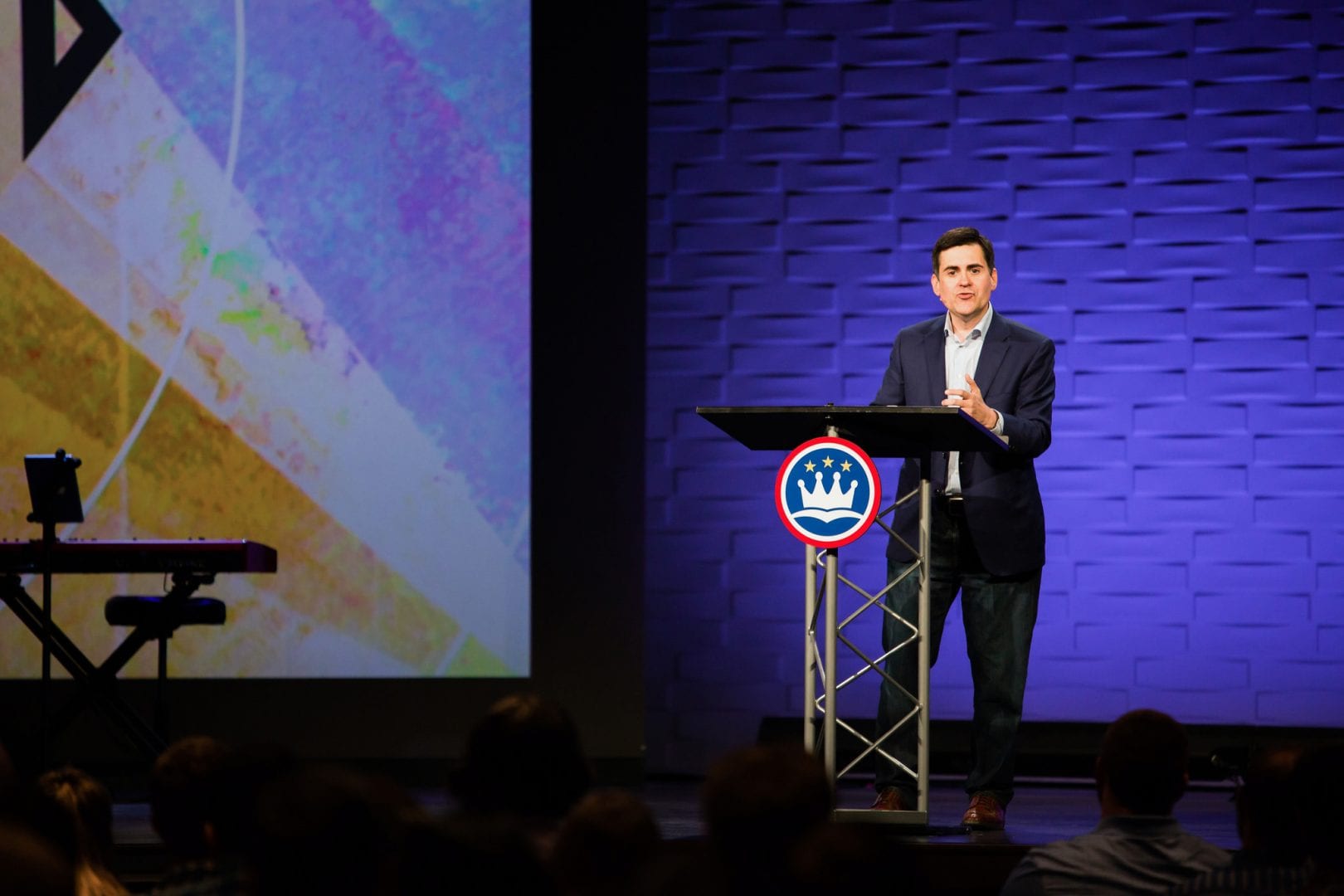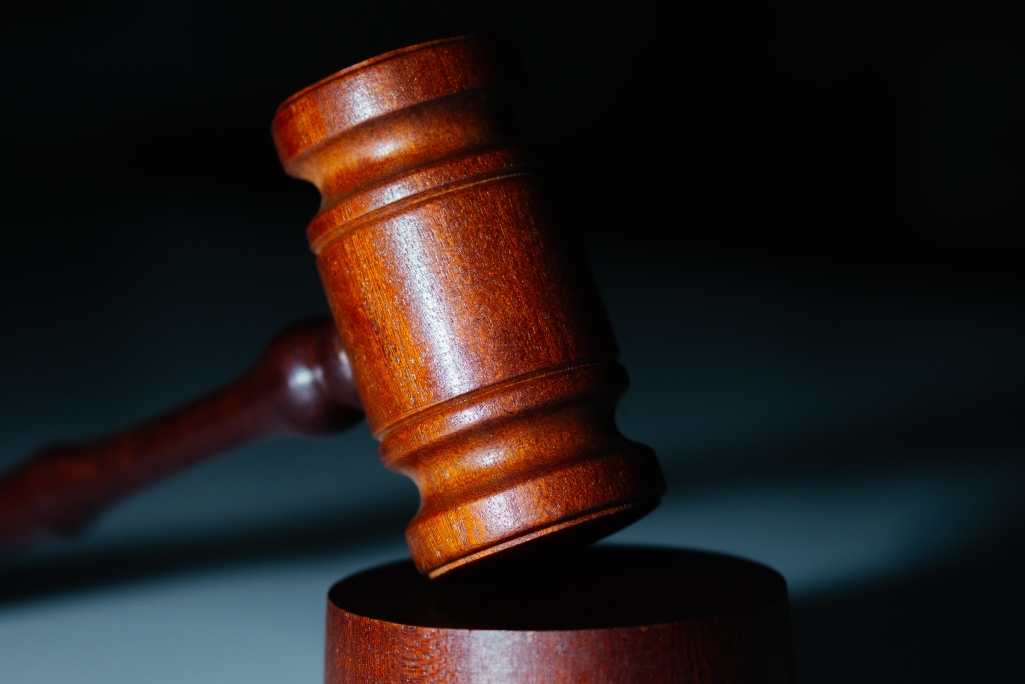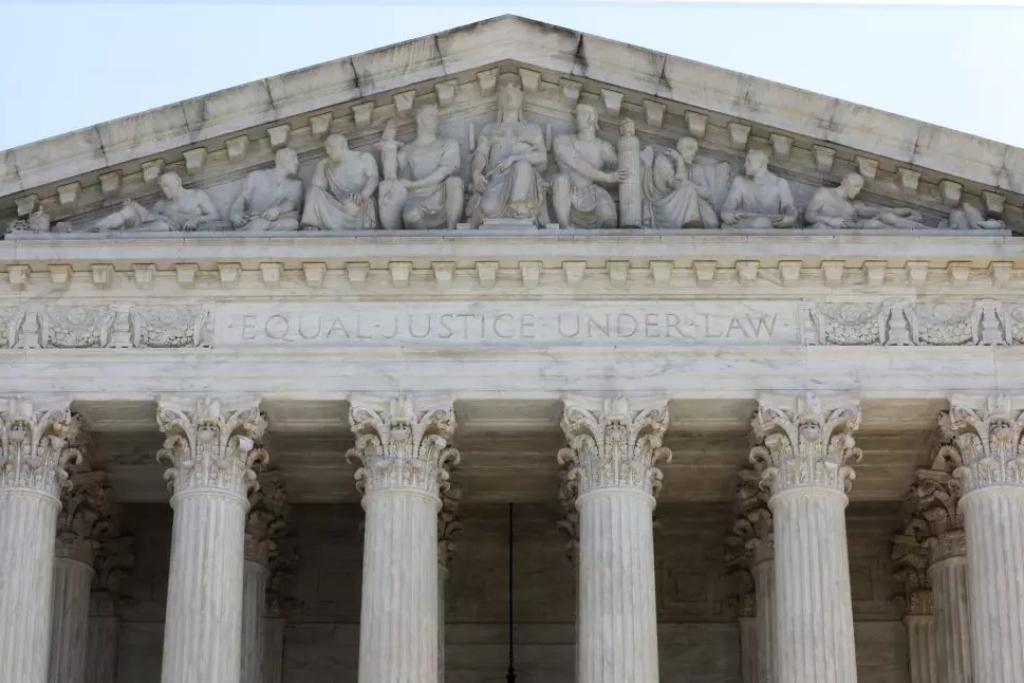
Russell Moore, ERLC president
It was a good year for religious liberty in the United States, and the Supreme Court has the opportunity to advance such protection in 2020, say advocates for the country’s first freedom guaranteed in the Bill of Rights.
A string of victories for religious freedom delivered by judges and the Trump administration marked 2019, spokesmen for the organizations Becket and Alliance Defending Freedom (ADF) told Baptist Press (BP).
“It’s been a very positive year on the whole, particularly in court and in terms of federal regulations,” said Luke Goodrich, vice president and senior counsel for Becket.
In cases involving the First Amendment’s ban on government establishment of religion, “you see courts more willing to treat religion as a natural part of human culture rather than using the establishment clause to eradicate religious symbols or strike down tax exemptions for religious organizations,” Goodrich told BP in a phone interview.
“Then on the free-exercise [of religion] side, you see renewed protection for religious student groups and for potential, renewed protection for religious adoption agencies as well.”
Jonathan Scruggs, senior counsel for ADF, said, “[Y]ou could really see a change in momentum, particularly in the context of business owner cases, creative professionals.”
Courts came out “strongly in favor of people of faith entering into the market place and controlling what they say and preventing the government from really selecting particular religious viewpoints and forcing people to speak views against [their] beliefs,” Scruggs told BP in a phone interview. “So there was actually a fair amount of encouraging things that happened that really protected a lot of people to go and live out their faith in the public square.”
Meanwhile, 2020 offers hope for further gains.
“There are a very large number of significant religious freedom questions on the doorstep of the Supreme Court, and a major advance for religious freedom would be if the court took several of those cases and continued affirming robust protection for religious freedom for all,” Goodrich said.
For Southern Baptists, religious freedom is vital to their mission, said Russell Moore.
“My prayer is that we never take this issue for granted or forget why it matters as we take the Gospel to nation and neighbor,” said Moore, president of the Ethics & Religious Liberty Commission (ERLC).
“Throughout history, Baptists have been known for carrying the gospel all over the world and for defending full religious freedom for everyone,” he told BP in written comments. “Those two commitments are related. We press for religious liberty because we believe no law and no government can compel the conscience. And we contend for religious liberty for the sake of the free spread of the gospel. There are many efforts underway both in courts and Congress, some giving cause for hope and others for concern.”
Among the 2019 court rulings counted by most religious freedom advocates as victories in establishment clause cases were:
- The Supreme Court decided 7-2 in a June decision a 40-foot cross on public land in Bladensburg, Md., that serves as a memorial to World War I soldiers is constitutional.
- A three-judge panel of the Seventh Circuit Court of Appeals in Chicago ruled unanimously in March the long-standing ministerial housing allowance does not violate the establishment clause.
Regarding the free exercise of religion, court decisions regarded by religious liberty supporters as wins included:
- A panel of the Eighth Circuit Court of Appeals in St. Louis ruled 2-1 in August that a federal judge wrongly dismissed the free-speech and free-exercise-of-religion claims of Minnesota filmmakers Carl and Angel Larsen, who refuse to create videos of same-sex weddings because they believe marriage is only between a man and a woman.
- The Arizona Supreme Court decided in September the city of Phoenix violated the freedom of speech and religion of artists Joanna Duka and Breanna Koski, who own Brush & Nib Studio and decline to create custom invitations for gay weddings.
- The Kentucky Supreme Court ruled unanimously in October in favor of Hands On Originals and its owner, Blaine Adamson, who declined to print T-shirts for a gay pride festival.
- A federal judge decided in September the University of Iowa violated the speech, association and free-exercise-of-religion rights of InterVarsity Christian Fellowship USA by barring the campus ministry from requiring its leaders to be Christians.
- Also in September, a federal judge blocked the state of Michigan from canceling the state-approved contract of St. Vincent Catholic Charities to provide foster care and adoption services because the agency refused to certify and place children in the homes of same-sex couples as a result of its belief that marriage is only between a man and a woman.
On the regulatory front, among the Trump administration’s pro-religious freedom regulations issued in 2019 were:
- The Department of Health and Human Services (HHS) issued a rule in May that provides for the enforcement of 25 federal laws protecting the conscience rights of health-care workers and institutions. A federal judge, however, nullified the regulation in November.
- Also in May, HHS proposed a regulation to rescind an Obama-era rule that required doctors to perform gender-transition procedures and abortions.
- The Department of Labor announced in August a proposed rule clarifying that churches and other religious organizations that act as federal contractors may hire and fire based on their sincerely held beliefs without fear of being penalized by the government.
“They’ve made some substantial contributions in terms of the guidance documents in protecting religious liberty,” Scruggs said of the Trump administration’s actions. “So we see it as a very significant step forward, and we’re hopeful to see what the administration continues to do.”
In a legislative victory in December, Congress approved and President Trump signed into law legislation that includes language rescinding a section of the Tax Cuts and Jobs Act of 2017 that required houses of worship and other nonprofits to pay a 21 percent tax on such employee benefits as parking and transportation.
The fight for religious freedom continues on these fronts, as well as others – such as gay rights legislation that could undermine freedom of religion and court cases regarding the freedom of churches and other religious bodies to govern themselves and the authority of a state to require churches to pay for potentially abortion-causing drugs through their health insurance plans.
The last year was not without discouragements, Goodrich said.
“[Y]ou continue to see some state and local governments or government officials that are willing to treat traditional religious beliefs about human life, like in the context of abortion, or about human sexuality, like in the context of same sex marriage, . . . as anathema and try to punish those,” he told BP.
The Supreme Court will rule in at least one major case in this term and is expected to decide in 2020 whether to review appeals of lower-court opinions in some important religious freedom cases.
The justices heard oral arguments in October in a case regarding whether the classification “sex” in federal civil rights law includes “sexual orientation” and “gender identity.” The ERLC and other organizations contend interpreting “sex” discrimination to cover gay and transgender rights would create conflicts for churches, religious schools and charities, and individual believers.
Among the cases before the Supreme Court, religious freedom advocates hope the justices will agree to rule on an appeal out of Washington state in the clash between religious liberty and sexual liberty. Barronelle Stutzman, a florist who declined to design flowers for a same-sex wedding, has asked the high court to hear her appeal a second time after the state Supreme Court twice ruled she was guilty of illegal discrimination.
Lower courts have provided divergent rulings on cases involving wedding vendors who abide by their religious convictions and refuse to provide their services for same-sex ceremonies.
These business owners and artists are “trying to love and help people in their community and their respective clients regardless of who they are, but there are just some messages that they cannot celebrate and promote,” Scruggs told BP. “And that’s what these cases are all about.
“Eventually the U.S. Supreme Court – and really now – needs to weigh in on this issue and gain clarity for the entire country. It doesn’t make sense for religious business owners in one part of the country to be protected and not in the other.”
(EDITOR’S NOTE – Tom Strode is Washington bureau chief for Baptist Press.)


